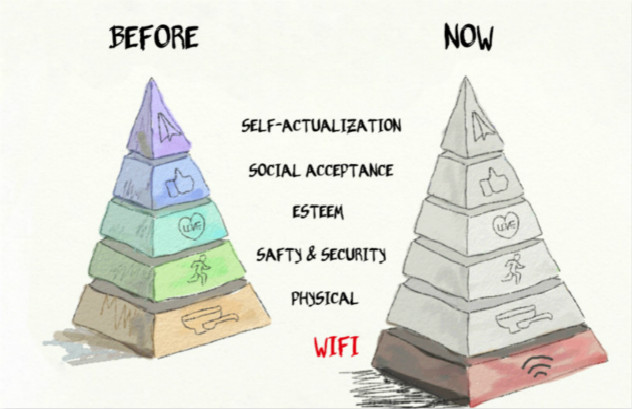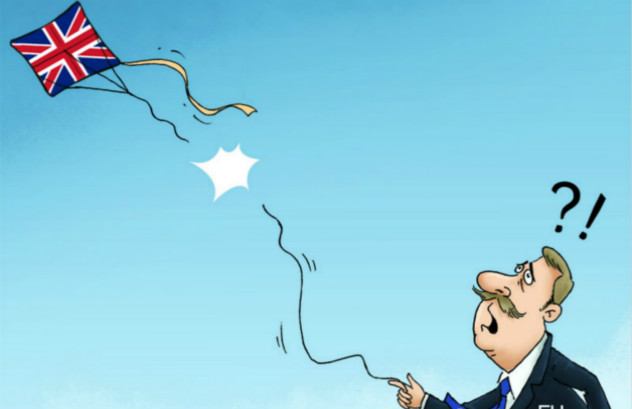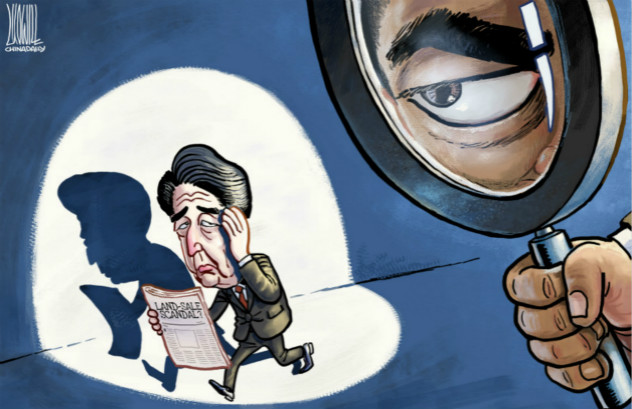Master information flow, instead of becoming its slave
Most people today face the problem of information overflow. Virtually we can't avoid being the target of a variety of news, stories and commercials that play on our curiosity.
A majority of us communicate with the world through what are collectively called the three screens: the TV screen, the computer screen and the screen on our mobile phones. Every day, vast volumes of infotainment contents hit these screens and compete to capture our attention. These screens act as the portals through which we perceive and understand the world. In this sense, the portal truly frames our world.
It is thus imperative that we should be alert in this era of information explosion and become the masters of information, not its slave. In theory, the unprecedented access to information should help the grassroots people improve their lives. In reality, however, rather than benefiting from the information bonus, many are actually suffering from information anxiety.
Quite unaware of the fact, a person may become a compulsory heavy user of media, desperately addicted to his/her laptop, tablet or smartphone. A sense of anxiety could thus arise leading to negative feelings of self-distrust, depression and meaninglessness. The supposed benefits brought about by informatization could indeed be a double-edged sword, depending on our mastery over it and over ourselves. This is especially true in the case of social media use.
It may not be an exaggeration to say that social media is taking over the everyday life of most people. As Samuel Ullman has said, in the center of one's heart, there is a wireless station for receiving message. The lure of wonder and the appetite of what's going on around us have kept the aerials of our hearts up round the clock. With a smartphone equipped with weibo, WeChat and various other social networking applications, continuously increasing amounts of information are brought to our fingertips, making ignorance improbable. The prime concern and challenge, therefore, become how to best utilize the abundant information and convenient communication.
I have a two-pronged approach to this problem. The first is based on self-discipline, while the other is based on foresight and planning. The ultimate constraint of our media use lies in the limitations imposed by time and our own body. Time spent on social media is time taken from other activities. Energy used on social media is energy lost for other social and human affairs; it is a zero-sum game.
The human body, too, has a limited capacity to consume and process information, and information overload causes mental fatigue and disrupts our ability to focus on other important activities. Therefore, we should practice self-restraint whenever we immerse ourselves in the social media so as not to get lost in it. This is necessary if we hope to stay on schedule with our routines and our responsibilities.
We should also try to develop an information intake strategy to regulate our information consumption. For example, we can discern which people or topics we want to follow as opposed to indiscriminately following everything based on whims. Mindlessly increasing the things we follow online inadvertently takes us away from contents that are of real importance to us. Non-regulation of our portals would also suck us into the abyss of Internet addiction.
From the very beginning of the Internet boom in 1990s, digital divide, or the gaps between information haves and have-nots, has been a prominent concern. Today, the divide is mostly rooted in the difference between people's ability to make the most of universally accessible information services. Inability to properly regulate our use of social media could lead to addiction and have a disastrous impact on a person's life.
To highlight the significance of the issue, the established concept of information literacy might need to be updated to embrace the new characteristics of social media proliferation. In short, an information-literate person should be able to maximize the advantage of information prosperity while minimizing its side effects.
At the core of information literacy is the need to develop a critical mind toward the flood of infotainment. We need to be the masters of our screens and take control of how to incorporate the portals into our routines. We cannot control the quality of the information prevalent on the Internet and the interactions among users, but we can control the configuration of our own portals so as to filter what kinds of content and persons will be available to us. Ultimately a properly tailored portal should empower, rather than enslave, us.
The author is a professor at the School of Journalism and Communication, Tsinghua University.
(China Daily 05/04/2013 page5)





















